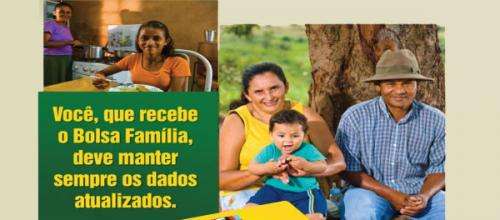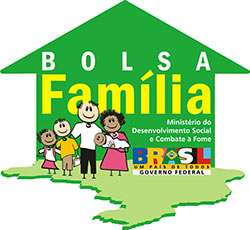'Bolsa Familia' boosts families in Brazil

Can Brazil's local governments run a federal income-supplement program without political interference? Yes, they can, says Natasha Borges Sugiyama, a UWM assistant professor of political science, who has been studying the political impact of Brazil's "Bolsa Família" (Family Grant), a program designed to alleviate poverty and develop human potential. The program gives cash grants to mothers in exchange for making sure their children go to school and get regular medical checkups and immunizations.
Since its inception in 2003, the Bolsa Família program has had a real impact on children and families living in poverty, says Sugiyama. "In much of Latin America, including Brazil, large segments of the population live in poverty and lack the resources to meet their most basic needs. Conditional cash-transfer (CCT) programs are an example of a public-policy strategy with the potential to elevate living standards for millions of families," she says.
CCT programs such as Brazil's are in place in many Latin American and Caribbean countries. Eighteen countries have now adopted such programs, Sugiyama wrote in a paper with Wendy Hunter of the University of Texas, published in LASAForum in the summer of 2012.
"To put this trend in perspective, over 25 million families (about 113 million people), or 19 percent of the region's population, participates in CCTs," the authors wrote. Brazil's Bolsa Família is the largest CCT program in the world; in 2012 it reached 13.7 million families living in poverty.
Built-in safeguards
Sugiyama was curious about how the federal Bolsa Família was working in Brazil, since many local politicians have traditionally used federal funds to buy votes.
Her research in three northeastern Brazilian cities showed that in the case of Bolsa Família, built-in safeguards – like transparency in operation – against political interference have worked. "It's a limited sample, but an exciting finding. It's important because the beneficiaries need to feel this program is a social right," not a political favor.

Her research and that of others has shown that Bolsa Família is succeeding in its goals of raising living standards for families living in extreme poverty and improving health care and education. But challenges remain. For example, while Bolsa Família encourages school attendance and visits to health clinics, more funding for primary education and basic health care is needed to improve access and quality of services.
Bolsa Família is having other impacts that Sugiyama plans to explore and write about – empowering women and encouraging poor people to acquire important legal documents like birth certificates that are needed for the program. Bolsa Família also appears to be helping the poor in the areas she studied feel a sense of political efficacy.
"It is interesting to see how one social policy aimed at basic needs has had this ripple effect," Sugiyama says.
Cities lead the way
Her research on Bolsa Família and another important social program in Brazil, Bolsa Escola, a school grant program, grew out of earlier explorations of changes to Brazilian politics as municipalities took over more responsibilities for basic services like education and health care, starting in the early 1990s. That work resulted in a book, "Diffusion of Good Government: Social Sector Reforms in Brazil," published in December by University of Notre Dame Press.
"A lot of innovative programs emerged from cities, and authorities in other cities began replicating them." Among those were "pro-poor" programs like Bolsa Escola and a family health program called Programa Saúde da Família.
The book, based on her 2003-04 surveys and field research, focuses on how and why some of these social reforms have spread throughout Brazil.
She looked at the role played by ideological convictions, professionalism among government officials and political self-interest to explain the diffusion of model reforms.
Her conclusion is that "Yes, you can get good government," even when dealing with large countries that are complex and diverse and have large numbers of marginalized populations.
Sugiyama found that local mayors adopted these programs partly because of ideological commitments to social justice and partly because technocrats and bureaucrats in those cities learned through professional networking which programs could work. Electoral considerations played a much more minor role, she concluded. In some cases, local programs like Bolsa Escola inspired federal government programs like Bolsa Família.
"The federal government is learning from local innovation and experiences."
Reviewer James W. McGuire of Wesleyan University wrote of the book, "Natasha Borges Sugiyama contributes significantly both to theoretical debates about diffusion and to important policy debates about the best ways to alleviate poverty, improve educational attainment and increase access to health services in middle-income developing countries. Her substantial field research is coupled with strong quantitative analysis to deliver original interpretations important to scholars with an interest in public policy and Latin America."
Provided by University of Wisconsin-Madison

















